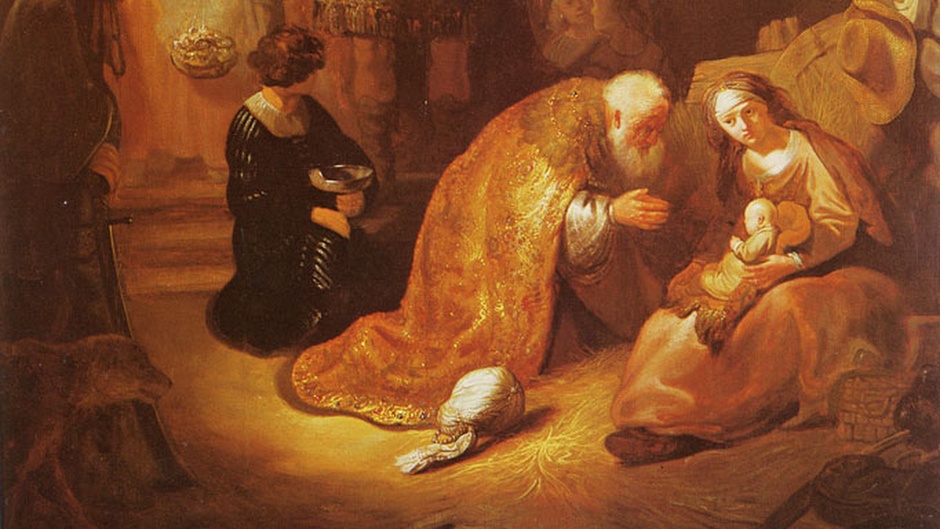What will we bring him?
As we focus on the mind-stretching story of the Creator entering into his creation as a human infant, let’s worship him with heart, head and hands this Christmas.
28 DECEMBER 2022 · 11:40 CET

The painting of the Adoration of the Magi, thought to be a Rembrandt copy, fell off the wall of a private home in Rome six years ago.
While repairing the damaged frame, an art restorer realised the painting was an authentic Rembrandt. Most likely it was painted around 1632 in Rembrandt’s studio a short walk from where I sit to write.
It depicts Matthew’s story of these Magi, possibly members of an ancient Persian priestly caste, who came to the crude stable where Jesus was born bearing gifts of gold, frankincense and myrrh.
These gifts have been interpreted as appropriate for a king (gold), for a god (incense for worship), and for the embalming of the God-man destined to die to restore humanity and creation (myrrh).
As we focus on the mind-stretching story of the Creator entering into his creation as a human infant, the question we can ask ourselves this Christmas is: what will we bring him?
Sleepers, wake!
This has been the theme of Advent meditations I prepared last week to present in the Look Up book, art and information centre below our apartment in the heart of Amsterdam.
They are based on the Archbishop of York’s Advent Book for 2022, written by Nicholas Holtam, the Church of England’s lead bishop for the environment.
The book’s title, ‘Sleepers, Wake’, echoes that of a Bach choral sung at Advent calling for the faithful to wake up, pay attention, stay sober and be alert to what is happening in the world around us.
It addresses a humanity in danger of sleepwalking towards catastrophe. Its subtitle is clear: ‘getting serious about climate change’.
Linking Christmas and climate change may feel artificial and unnatural, confronting and uncomfortable, far removed from the warm and cosy fuzzies we expect around Christmas.
But, when you think about it, nothing could be more natural. The Incarnation is when God invades nature, the material world. The Christian doctrines of Creation, Incarnation and Resurrection are all about God’s purposes for the natural, material world.
The Incarnation means that matter matters. Jesus entered our wintry, wounded, warring world to restore his purposes not only for humanity, but also for creation.
Isn’t that what Paul tells us in Romans 8, that creation is groaning waiting for the liberation from the bondage to decay?
So, back to the question: what will we bring him? How can our gifts this Christmas, small acts of doing things differently, bring light and hope?
Gold?
Will we give him our gold? How we spend our money reveals what we believe. What do we believe about our responsibility towards God’s gift to humanity, the awe-inspiring planet on which we live?
Ever since the lunar astronauts sent us pictures of our planet from the moon, we have become conscious of speeding through space together on a small, fragile, vulnerable spaceship called Earth. As many climate change protest placards remind us, there is no Planet B.
Those who are wealthy enough to have investments need to hold the companies we invest in accountable to climate standards, Holtham reminds us.
Those of us who do not have personal financial investments still have economic power in the way we choose to use our money.
Frankincense?
We can give him the incense of praise and prayer. When we worship the Babe of Bethlehem, we worship the Creator and Sustainer of the Cosmos.‘For from him and through him and to him are all things’! (Roms 11:36).
In the beginning was the Word, and the Word was with God, and the Word was God… Through Him all things were made, and without Him nothing was made that has been made.… (John 1:1,3)
Worship with integrity needs to be reflected in our lifestyle, repenting from greed, apathy and selfishness, striving to safeguard the integrity of creation, and to sustain and renew the life of the earth.
Thank God for A Rocha, a Christian global family of conservationists helping churches and organisations wake up to the need to care for God’s earth! Can we pray for peace on earth and not for peace with the earth?
Myrrh?
The gift of myrrh foretold that the infant Jesus was going to die for the love of God’s world. Yet death was not the last word.
Life is stronger than death. Light is stronger than darkness. Love is stronger than hatred. Our gift of ‘myrrh’ means willingness to die to our old ways as we confess, like AA alcoholics, that we are fossil-fuel addicts needing God’s help to change.
One concrete step YWAMers can take towards change is to join the two day Creation Care Forum online, Wednesday and Thursday, Jan 25-26, 14:00-16:00 CET, on how caring with God for his creation integrates with his wider mission.
Meanwhile, let’s worship him with heart, head and hands this Christmas.
Jeff Fountain, Director of the Schuman Centre for European Studies. This article was first published on the author's blog, Weekly Word.
Published in: Evangelical Focus - Window on Europe - What will we bring him?
